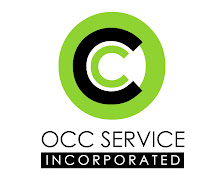I’m sure you all have your computers backed up properly.... right, and
don’t need to really worry about this, but in case you have (as we do) things
like wedding photos and videos on DVDs, you might need to rethink how to save things for the future.
Let’s consider our wedding videos, which in raw footage is
about 180 Gb. It’s currently on an external drive, which will likely not
survive 15 years, even on a shelf. So let’s review our options:
- We can put it on our computer, and have it backed up to our online backup service. That is going to be kinda expensive. Now we need 180 Gb of extra backup space in perpetuity, and through normal online backups we will have to buy a special package.
- We can always save the files to our computer and keep it on the external drive. There you go, two copies. Well, wait. Now every time you get a new computer or drop your old one in a lake, you have to think “now I need to make sure my wedding videos are backed up again”. Meaning, you won’t. When that external drive dies, so do the memories.
There is another option, but it
requires us to think of data storage in three different categories. The first
are primary storage, the usable, active set of data probably sitting in your “My
documents” folder or in your Inbox. The second are Backups. We should all be familiar with backups, but I
want to make a distinction of what makes a backup a backup. It is a redundant
set of data, sure, but it is also automated. The automation is part of the
appeal, after all, no matter how much we all complain about systems failing, most
of the time things go wrong it’s our fault.
There is a third data store type. The
archive. It is distinguished simply as long term, unchanging storage. Wedding
videos. The benefit of archiving, is it almost never needs to
be accessed. So much of the cost of cloud storage is dedicated to the cost of
moving the data to and from your computer. In the case of archiving, that will
happen so rarely, it’s not worth discussing. Whereas a backup store will have
traffic every day. Because of this, there are some archive storage services
that make it CHEAP to store things long term online, and the one I’m going to
describe is called Amazon Glacier.
Yes, by the people who bring you impulse purchases like tube socks in two days with free shipping. That Amazon. If you weren't already aware, they are a giant in the cloud computing world, but they
have always targeted the developer community rather than the general public.
Glacier is what they advertise as their archiving product, and at $.01 per Gb
per month, I would say probably the cheapest online backup ever. Remember my
wedding videos..180Gb…..$1.80 per month.
So how do you use it? Well, as I said
before, Amazon web services (AWS) really targets developers, but there are some
great tutorials that will walk you right through the steps. Like this one. With a simple and
free tool to upload files (FastGlacier), all I have to do is upload my videos
once, then just pay the fare every month until death do us part.
Ted Hughes
Managing Director
OCC Service Incorpoarted
